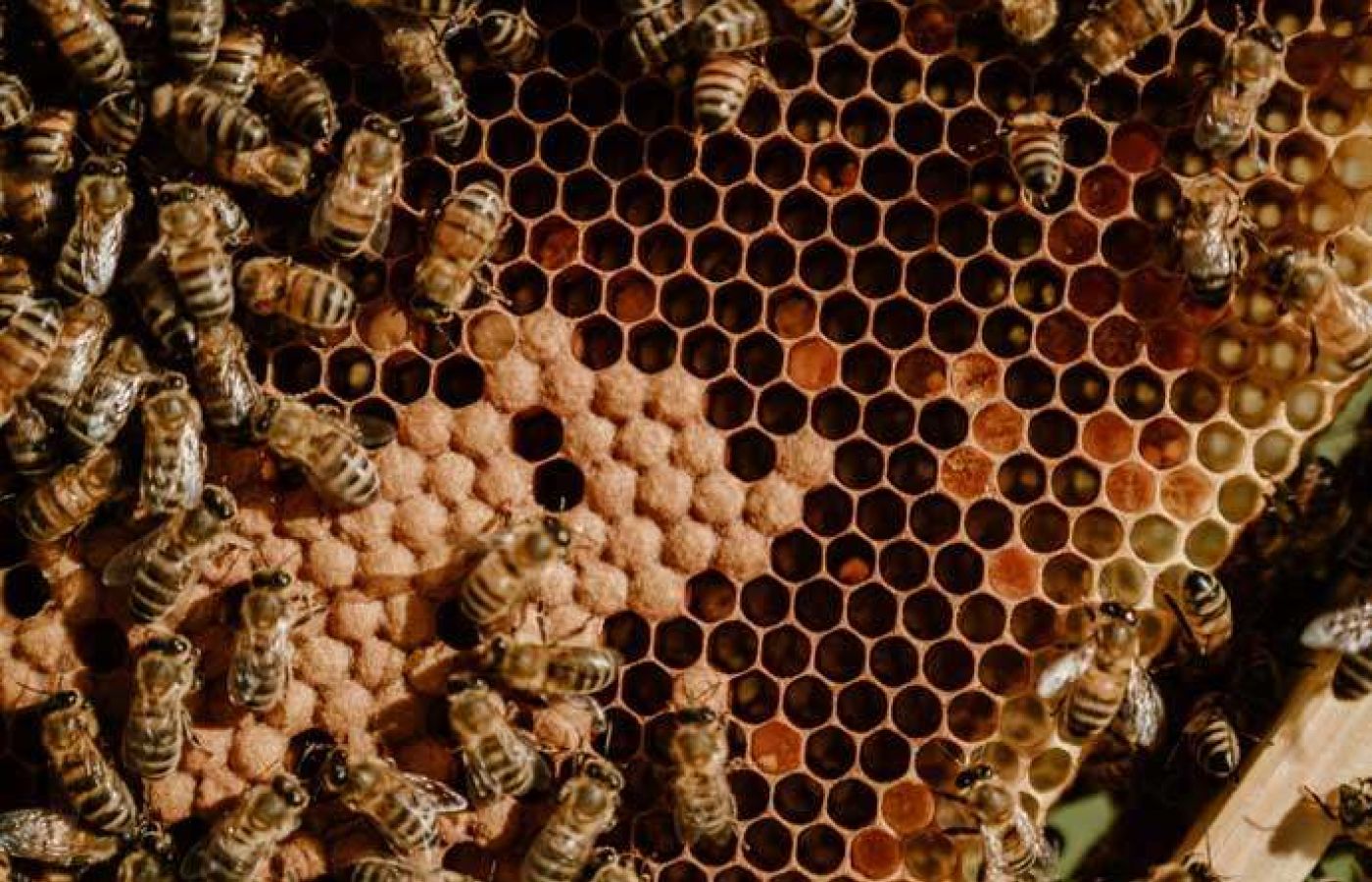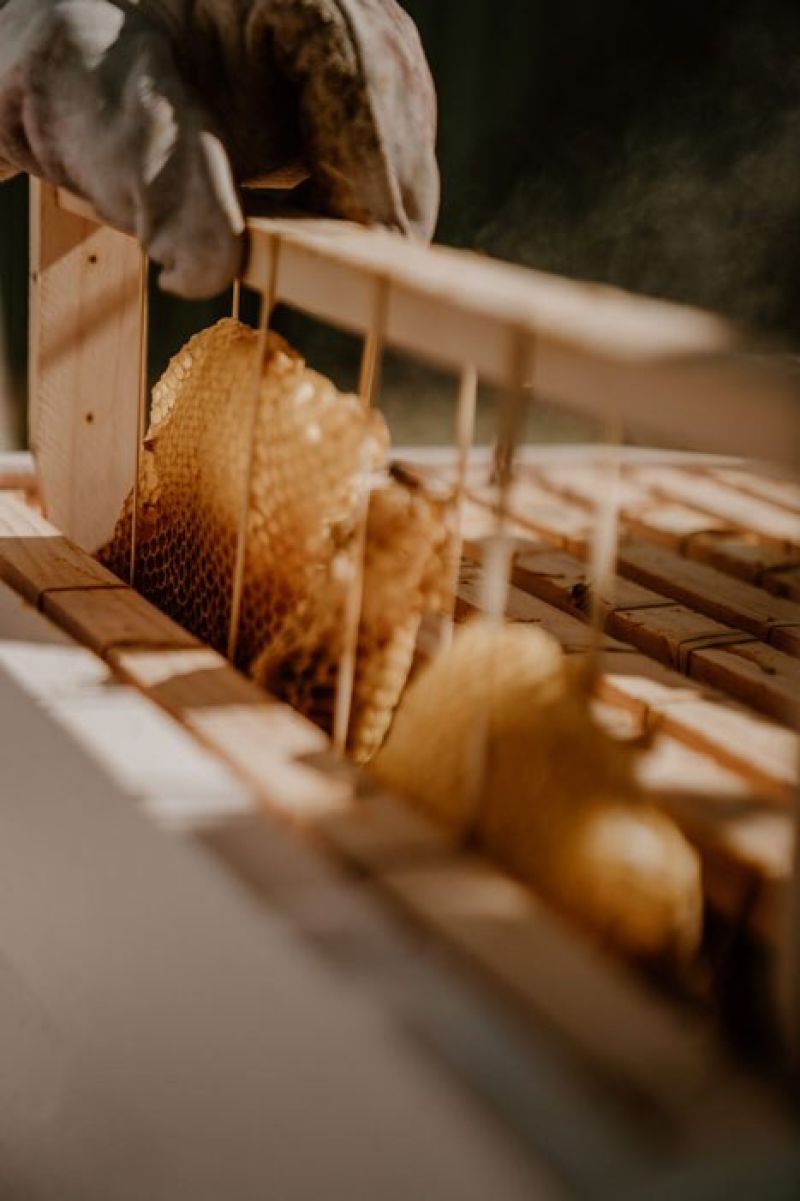
Options for Bee Removal
Bees are like nature's superheroes. They zoom around from flower to flower, helping pollinate blossoms and stimulate plants to produce fruits and seeds. They're essential to keeping the environment healthy and diverse and also making yummy honey. So, in a nutshell, bees are awesome, and life wouldn't be very good without bees.
That's why we're taking a new approach at Spiderman SE and promoting bee relocation wherever possible. With two qualified beekeepers on the team, we've put in the time to learn more about bees, and now you can benefit from our knowledge and guidance (and the bees will, too!).
Some Bee Facts
The bees you mostly see in suburban gardens are not native to Australia. They are an introduced species called the European or Western honey bee and were introduced into Australia in the early 1800s. Native Australian bees don't live in colonies and don't produce copious amounts of honey like European bees.
Seen a bee swarm on your property or nearby? Our accredited local beekeepers will assess the situation and, where possible, relocate the bees safely. If relocation isn’t suitable, we’ll guide you through the safest option.
Hit the Report a Swarm button to send us the details. Your quick action helps protect your home, your family, and the bees.
FAQs
Essentially, bees swarm when the colony outgrows its current space. The Queen leaves, and workers follow, or a new Queen may emerge in the bee nest, forcing the current one out.
They form a giant buzzing cloud of bees in the air, which you might have seen before - that's the swarm. While the bees wait for the scouts to find a suitable new location, like a hollow tree, they may settle on something inconvenient (to you), like your car or a tree close to your home. They're on the lookout for a new home, and they're not trying to be scary, but it's usually best to discourage them from staying - not by yourself, of course!
Scouts
A small number of bees flying in and out of a cavity, checking if it’s suitable as a new home. They often disappear within a day or two, but if they decide the spot is right, the rest of the colony may soon move in.
Swarms
A large cluster of bees hanging from a tree branch, fence, or other surface. Swarms are usually temporary while they search for a permanent home. This is the best time to act — bees can be collected and relocated safely and far more affordably than once they’ve moved into a wall or roof cavity.
New Nests
When a swarm settles and starts building comb. These are smaller at first but can quickly grow if not removed early.
Established Nests
Colonies that have been in place for weeks or months, with significant comb, brood, and honey. These are harder (and more costly) to remove than new nests.
If the swarm is on public property, such as a tree on a public footpath or at a park, you can call the council, who will arrange to deal with the bees. However, if the swarm or nest is on your property, it's up to you to deal with them, so keep reading to see what you can do.
Stay calm and keep your distance.
Bees in a swarm are usually not looking to sting, but it’s best to keep children, pets, and anyone with allergies well away from the area.
Avoid trying to remove the swarm yoursel.f
Swarms can be unpredictable, and handling bees without the proper knowledge and equipment can be dangerous. It’s best to leave the removal to professionals who know how to relocate them safely.
Don't use insecticides or spray.s
Store-bought sprays or insecticides can harm bees, the environment, and potentially you. In some areas, killing bees without a professional is also illegal, so it’s important to let us handle the situation safely and legally.
Contact us for professional assistance.
At Spiderman SE Eco Pest Management, we’re fully trained and equipped to relocate bee swarms safely. Click here to Report a Swarm. We’re here to help keep you, your property, and the bees safe. Whether the swarm can be relocated or needs to be exterminated, we’ll find the best solution for your situation.
We don't recommend you remove bees yourself at all. Bees are not naturally aggressive, but upset and agitated bees can be extremely dangerous. You should always treat bee colonies and bees with care if you are not qualified to manage them.
Once a swarm has been safely collected and relocated, those same bees won’t return. Honeybees are loyal to their new hive once they’ve been moved. What can happen, though, is new swarms or scouts may find the same attractive cavity in the future. That’s why it’s important to seal up gaps, vents, or wall cavities after a removal. If entry points remain open, another colony may decide to move in.
Bee management is a paid service. Fees vary depending on the situation:
Pricing Guide:
- Easy swarm removal: $200–$250
A basic ground-level swarm (e.g. a cluster in a bush or small tree within easy reach). - Complex swarm removal: from $350
Larger or more complex swarms, or where access, safety, or extra time is required. - Easy cutout (ground level, simple access): from $350
Comb/established colony where brood is present but access is straightforward (e.g. irrigation access points, meter boxes, storage boxes). - Complex cutout (structural access required): from $500+
Established colonies inside walls, roofs, or other cavities where a builder/tradesperson must provide access. - Extermination: from $200
Where safe relocation or cutout isn’t possible and extermination is necessary. - Scout spraying: from $200
Targeted pesticide treatment to stop scout bees investigating an entry point and establishing a new colony.
Final pricing depends on colony size, location, and access. We’ll always confirm options and costs with you before proceeding.
Travel fees will also apply for job sites more than 30km from Mount Gambier.
We’re all for saving the bees, but here’s why we can’t offer free swarm collection:
First, we’ve invested in making sure our team is highly qualified. Over the past two years, we’ve sent two of our staff to Adelaide to complete specialised training through Bee Prepared, an RTO dedicated to safe and sustainable bee management. This ensures that when we handle bees, we do so with the utmost care and expertise.
We also carry $20 million in public liability insurance and $1 million in professional indemnity insurance, so you can rest easy knowing that we’re fully covered. Maintaining this level of cover isn’t cheap, but it’s crucial for protecting both you and us.
In addition, we’re the only qualified bee keeper/pest management technician combo in our service area. We assess not just the bees, but also the overall safety of your property and any potential pest-related risks. As licensed professionals, we bring a high level of skill and responsibility to every job.
Our swarm collection fees cover our investment in training, insurance, equipment, and the time it takes to relocate the bees safely. We believe in providing a professional and safe service for you and the bees, and like any other service, that comes with associated costs.
You’re getting more than just a quick removal when you engage us. You’re getting a team invested in keeping you and the bees safe, backed by proper training, knowledge, and insurance.
A standard swarm collection usually involves at least two visits. Sometimes, it can be straightforward to relocate the bee colony by finding the Queen bee and placing her inside a specially designed box called a nuc (nucleus hive) that allows the rest of the bees to enter. They will follow where she goes, so they all relocate safely into the box over time, and we can return to collect the box after dusk. We will quarantine the nuc at a separate site for at least two months to monitor the bees' health and check for pests and diseases before adding them to our very own apiary at Spiderman SE headquarters.
As a last resort, we can blow insecticide powder into the colony, killing the bees. We always prefer not to do this if possible, but we understand that sometimes there is no other choice.
Whether the colony has been removed or destroyed, it is imperative that all wax combs are thoroughly removed or access to the location is blocked. This proactive measure is essential to prevent the return of new bee swarms attracted by the scent of the comb. If the bee nest is inside a wall cavity, your roof or some other hard-to-reach place, we suggest contacting a handyperson or decorator to advise how to reduce damage to your property. We are happy to work alongside them, using our expertise to remove the comb and any workings while they use their expertise to take care of any repairs.
The time required for bee removal and treatment, as well as associated costs, can vary significantly based on the complexity and location of the bee infestation. Factors such as the size of the nest, accessibility, and the overall complexity of the removal process may influence the duration and associated charges.
Even after bees are removed, the wax comb they leave behind can cause serious problems. Left in place, comb attracts new swarms, drips honey into walls or ceilings, and can even cause a foul “slime out” when it ferments and rots. That’s why removing comb or sealing off the area is essential.
We’re experts in bee removal, but we’re not builders. If bees have been inside a wall, roof, or other structure, you may also need a handyperson, carpenter, or roofer to open and repair the cavity properly once we’ve done our part. We’re happy to work alongside other trades to make sure both the bees and your property are dealt with safely.
Despite our preference for relocation, there are some situations where extermination is the safer, more responsible choice:
- Safety Concerns: If a hive is in a high-traffic area or inside a structure, the risk to people - especially those with allergies - can be too great to safely relocate the bees.
- Disease Risks: Feral bees can carry dangerous diseases like AFB and EFB. Relocating an infected swarm risks spreading the infection to other managed colonies, which could devastate local bee populations.
- Difficult Locations: If a hive is located inside a wall cavity or another hard-to-reach spot, removing the bees safely could cause significant damage to the property. In these cases, extermination may be the most practical option.
While extermination is always a last resort, it’s sometimes the only way to protect both the bees and the broader community.
It’s a common misconception that European honey bees are endangered. While there are global concerns about declining bee populations, these concerns usually focus on native bees and wild pollinators, not European honey bees. In reality, European honey bees, which are most commonly found in swarms and hives, are not native to Australia and were introduced for agricultural purposes. Their populations are thriving.
In fact, European honey bees are bred and managed extensively by beekeepers for honey production and pollination services. Their population is stable, and in some cases, they can even outcompete native bee species and disrupt local ecosystems.
While we always aim to relocate bee swarms when possible, there are situations where extermination may be the only option. This could be due to safety concerns, such as when bees have made their way inside walls or roofs, or simply because relocation isn’t within the budget. If extermination is the best or only solution, rest assured it won’t negatively impact the overall bee population, especially since European honey bees aren’t endangered and are widely managed.
We prioritise responsible pest management and always strive to find a solution that balances environmental protection with safety. When relocation isn’t possible, extermination is a practical and responsible choice for your property and peace of mind.
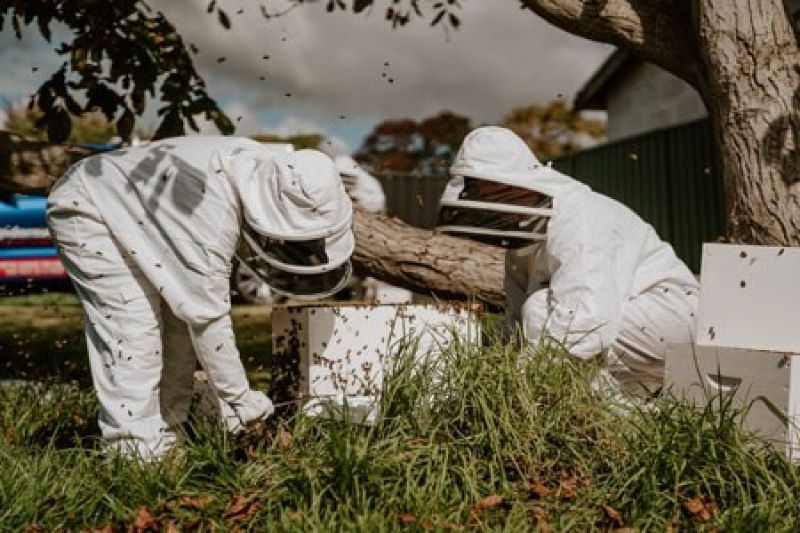
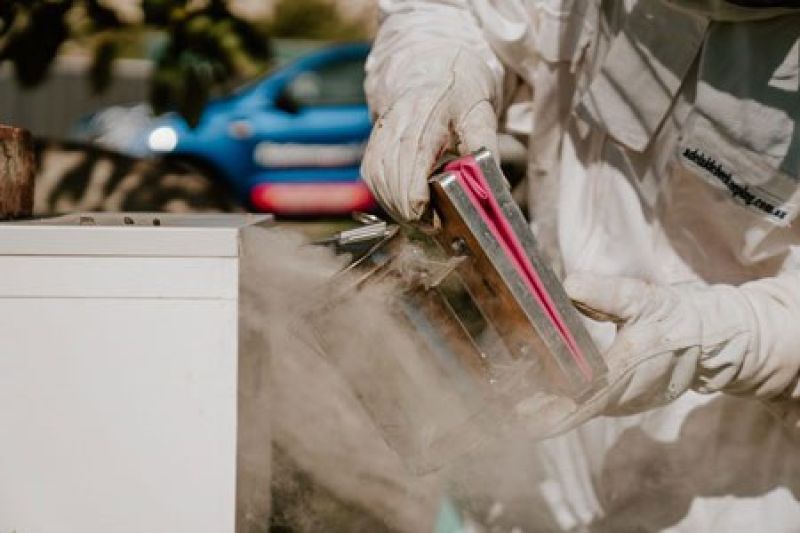
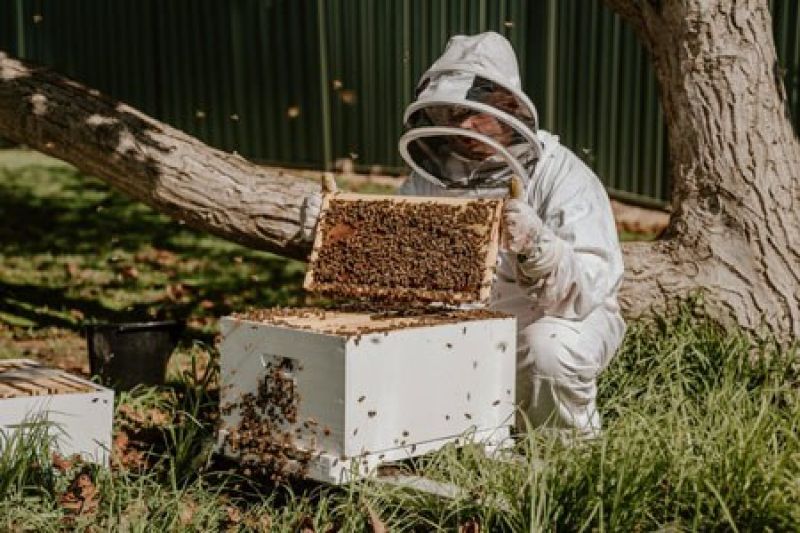
What Spiderman SE Can Do
A standard swarm collection usually involves at least two visits. Sometimes, it can be straightforward to relocate the bee colony by finding the Queen bee and placing her inside a specially designed box called a nuc (nucleus hive) that allows the rest of the bees to enter. They will follow where she goes, so they all relocate safely into the box over time, and we can return to collect the box after dusk. We will quarantine the nuc at a separate site for at least two months to monitor the bees' health and check for pests and diseases before adding them to our very own apiary at Spiderman SE headquarters.
As a last resort, we can blow insecticide powder into the colony, killing the bees. We always prefer not to do this if possible, but we understand that sometimes there is no other choice.
Whether the colony has been removed or destroyed, it is imperative that all wax combs are thoroughly removed or access to the location is blocked. This proactive measure is essential to prevent the return of new bee swarms attracted by the scent of the comb. If the bee nest is inside a wall cavity, your roof or some other hard-to-reach place, we suggest contacting a handyperson or decorator to advise how to reduce damage to your property. We are happy to work alongside them, using our expertise to remove the comb and any workings while they use their expertise to take care of any repairs.
The time required for bee removal and treatment, as well as associated costs, can vary significantly based on the complexity and location of the bee infestation. Factors such as the size of the nest, accessibility, and the overall complexity of the removal process may influence the duration and associated charges.
What You Can Do
If the swarm is on public property, such as a tree on a public footpath or at a park, you can call the council, who will arrange to deal with the bees. However, if the swarm or nest is on your property, it's up to you to deal with them, so keep reading to see what you can do.
Stay Calm and Keep Your Distance
Bees in a swarm are usually not looking to sting, but it’s best to keep children, pets, and anyone with allergies well away from the area.
Avoid Trying to Remove the Swarm Yourself
Swarms can be unpredictable, and handling bees without the proper knowledge and equipment can be dangerous. It’s best to leave the removal to professionals who know how to relocate them safely.
Don’t Use Insecticides or Sprays
Store-bought sprays or insecticides can harm bees, the environment, and potentially you. In some areas, killing bees without a professional is also illegal, so it’s important to let us handle the situation safely and legally.
Contact us for Professional Assistance
At Spiderman SE Eco Pest Management, we’re fully trained and equipped to relocate bee swarms safely. We’ll assess the situation to provide the best solution, whether relocating the swarm or exterminating it if necessary.
We’re here to help keep you, your property, and the bees safe. Whether the swarm can be relocated or needs to be exterminated, we’ll find the best solution for your situation.
Experienced Bee Experts
Our team includes two specially trained Beekeepers. Sam and Sarah are skilled in bee management and will assess what action we can take to ensure the safety of your family and pets and manage the bees as best as possible.
Whether you call it a beehive, a bee nest, or a bee colony, we are ready to take on your bee removal!
If you’ve got a wasp problem rather than a bee problem, Spiderman SE can still help. Check out our wasp nest removal page.

